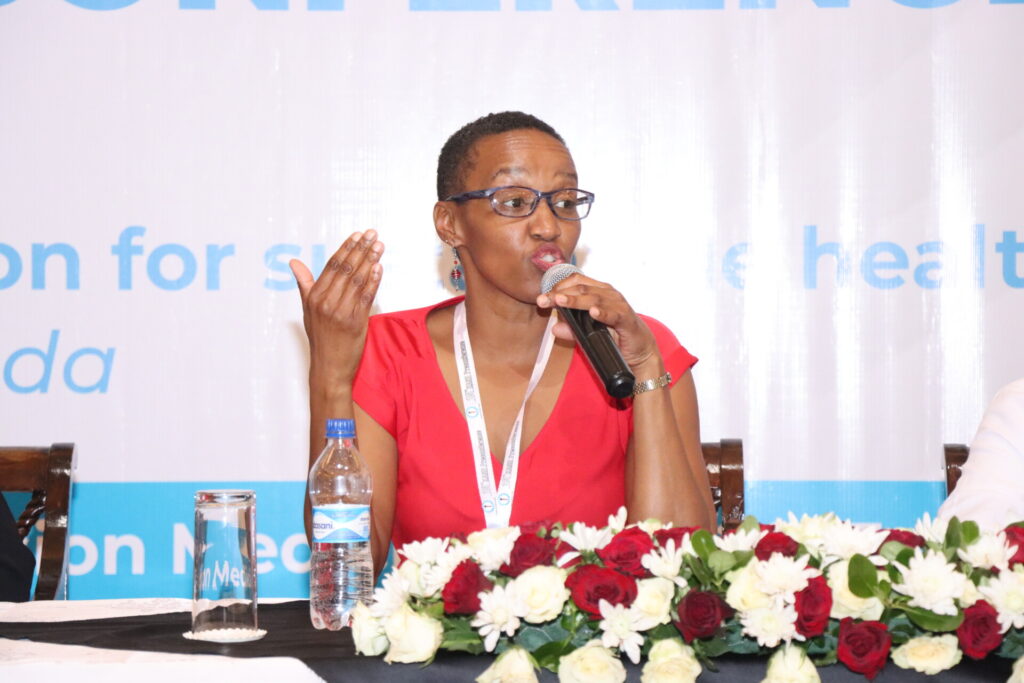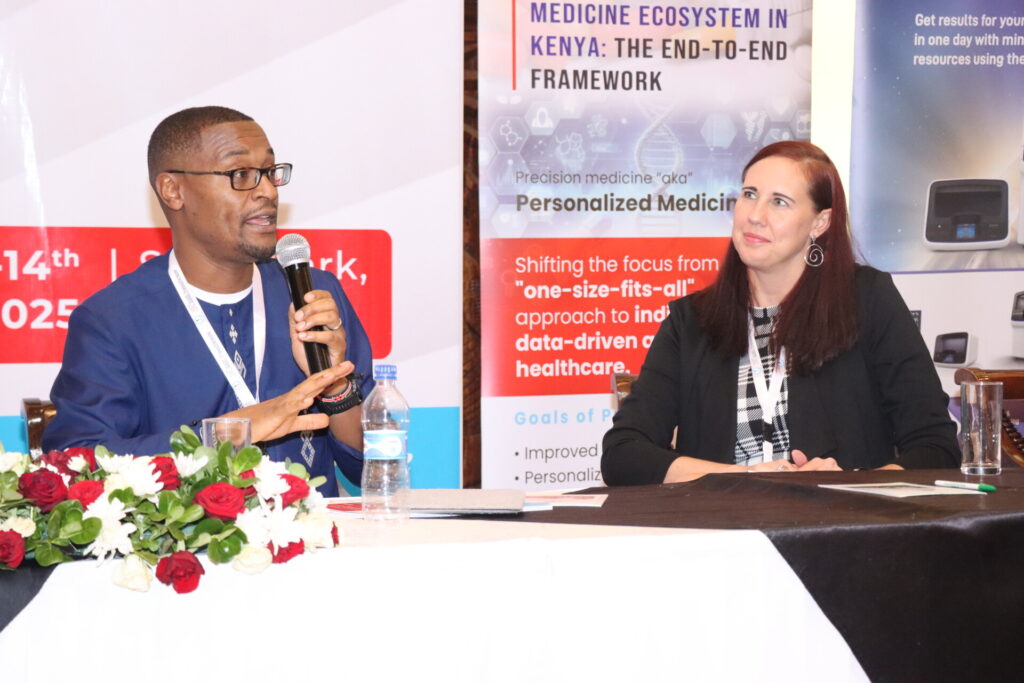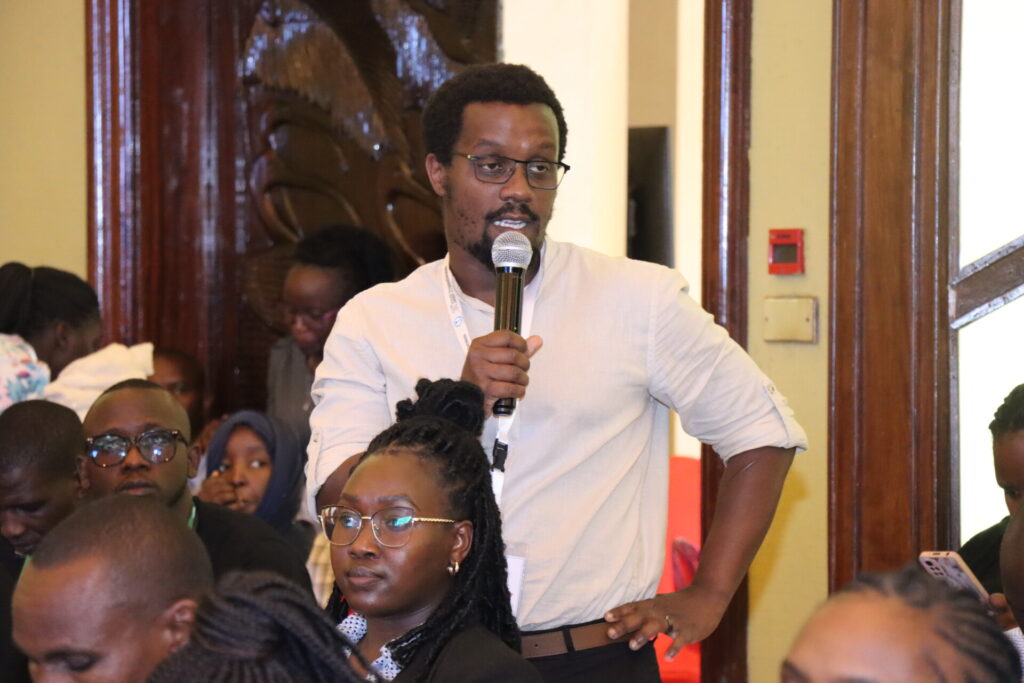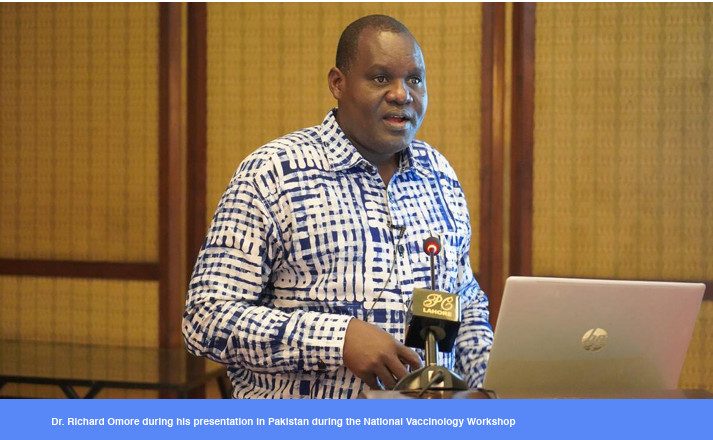
KEMRI Explores the Impact of Genetic Ancestry on Human Evolution and Migration Patterns in Africa
February 20, 2025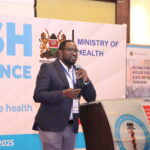
Decriminalizing suicide in Kenya
February 20, 2025Unveiling Kenya’s Precision Medicine: Strengthening disease management through targeted therapy
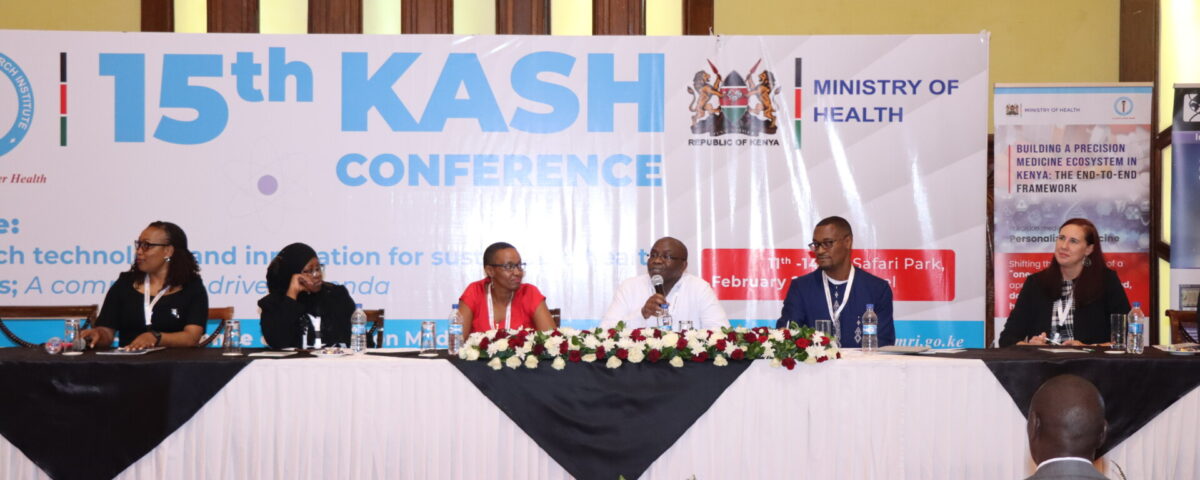
During the KEMRI Annual Scientific Health (KASH) conference on 11th February 2025 KEMRI hosted a pre-conference on “Unveiling Kenya’s Precision Medicine: Strengthening disease management through targeted therapy”.
Personalised Medicine (PM) is an individual-centred approach to medical care that overcomes the limitations of traditional medicine, increasingly allowing healthcare providers to shift the emphasis in medicine from reaction to prevention, enhancing drug efficacy while minimizing side effects, better compliance which will promote positive healthcare outcomes. Having comprehensive, cohesive national strategies and measures in place will draw us close to the realization of personalized health.
Cancer treatment dates back 3,000 years, with ancient Egyptians documenting breast tumour removal. Over time, surgery, radiation, and chemotherapy have evolved, leading to better precision and effectiveness. There have been scientific advances in Cancer Research among them the Human Genome Project (2003) which uncovered genetic insights revolutionising cancer treatment. Cancer is not a single disease but a group of diseases requiring customised treatments thus the need for PM/targeted therapy, “shift from a one-size-fits-all approach” to molecular profiling and precision oncology. Personalized oncology improves survival rates and treatment effectiveness. Genetic diversity among Africans necessitates local research and tailored treatments.
KEMRI together with MoH, health institutions, private sector, NGOs, research organizations, aim to strengthen, create an environment for nurturing innovation, comprehensive case management and evaluating public health capacity in precision medicine. During the pre-conference the stakeholders presented and held dialogue on solutions that feed into revamping innovation and medical policy, financial reform, institutional change, and sustainable development towards actively shaping preventive care and treatment.
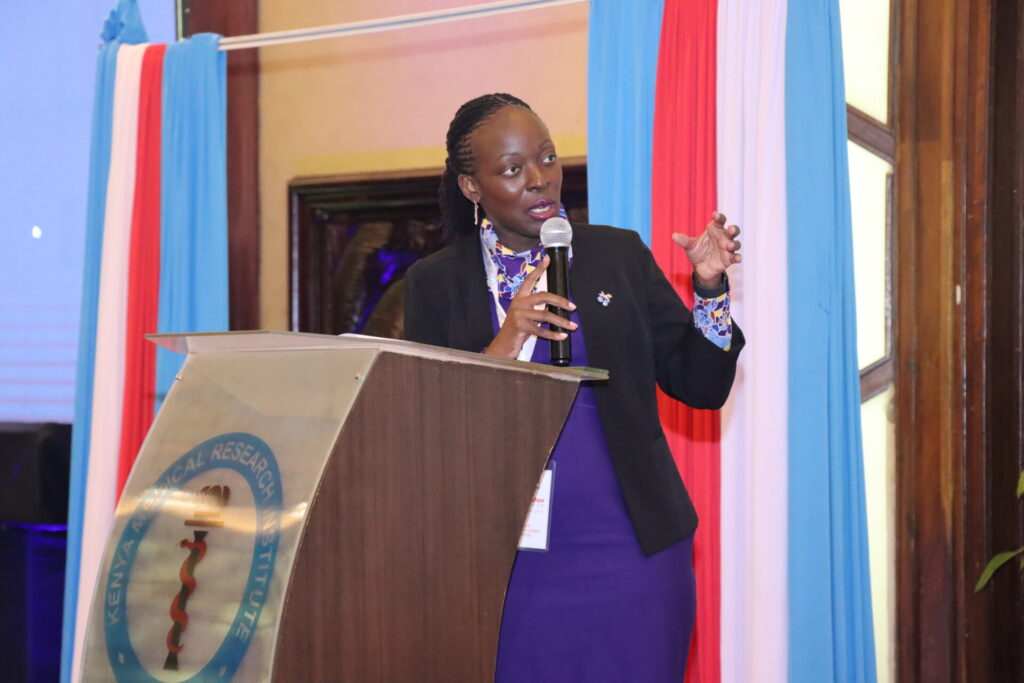
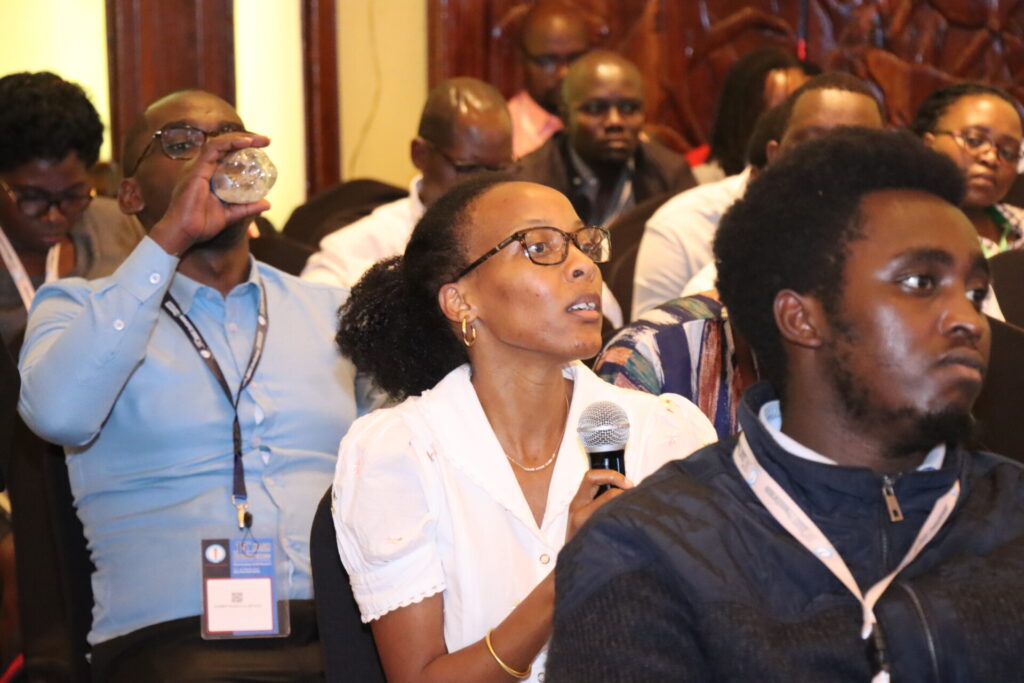
The objectives of the PM sessions were:
- Explore Opportunities for the application of precision medicine in Kenya’s healthcare system and mobilizing funds for this initiative.
- Identify Gaps in preclinical and clinical research related to precision medicine in Kenya that need to be addressed.
- Find ways to use and support digital Health and artificial intelligence in advancing precision medicine in Kenya.
- Strengthen Collaborations networking among policymakers, healthcare practitioners, regulators, private sector players, academia and the scientific community involved in precision medicine.
- Lay the foundation for the Development of an effective, appropriate, self-sustaining PM industry.
The sessions highlighted that for Kenya to fully realize UHC, there is need to acknowledge that the future of healthcare is precision medicine—a transformative approach that tailors medical interventions to individuals based on their genetic, environmental, and lifestyle factors.
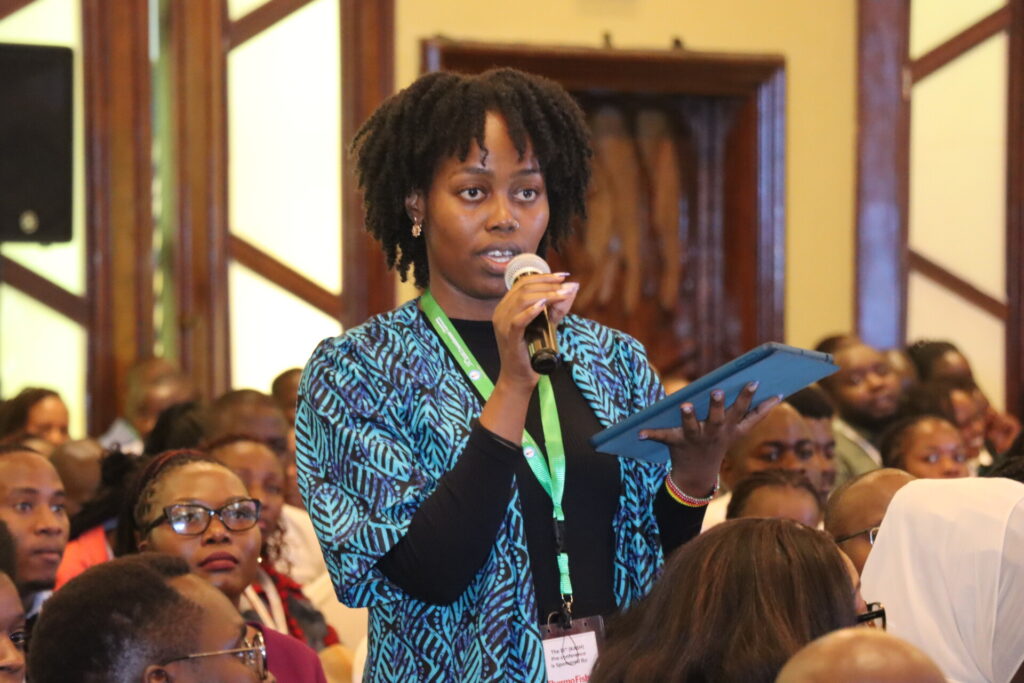
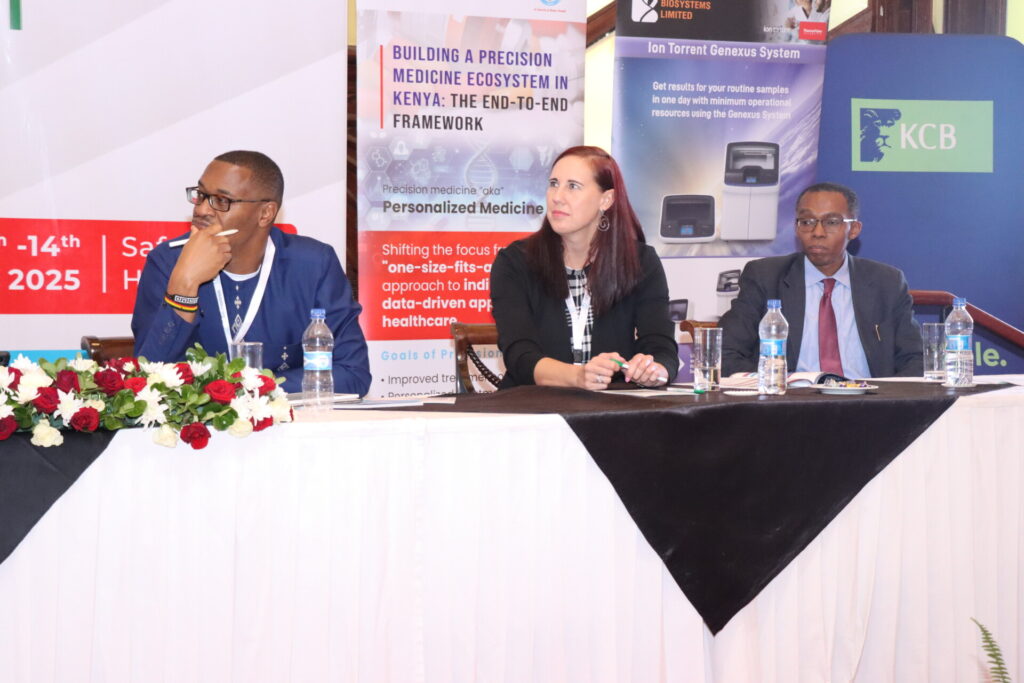
Precision Medicine will contribute to advancement of UHC by:
- Addressing Kenya’s Disease Burden: We can now target diseases like cancer, diabetes, autoimmune diseases, transplant care by understanding how genetics and environment interact. Imagine treatment plans tailored to individual needs, improving survival rates and reducing side effects.
- Improving Maternal and Child Health: Precision medicine can help identify high-risk pregnancies early, allowing for timely interventions that save mothers and infants. It can also detect genetic disorders in newborns, giving them a fighting chance at life.
- Strengthening Our Response to Infectious Diseases: By mapping the genetic structure of pathogens, we can develop targeted treatments that combat drug resistance and ensure better outcomes for all.
- Boosting Kenya’s Healthcare System: Investing in precision medicine infrastructure will not only enhance research and innovation but also attract and retain top healthcare professionals, positioning Kenya as a leader in cutting-edge healthcare solutions
How do we make the vision a reality?
- Investment in infrastructure – Modern laboratories, trained professionals, and robust data systems must be at the core of this transformation. KEMRI must be a leader in this charge and the government is committed to supporting KEMRI in this endeavor
- Localized research – Our approach must be tailored to Kenya’s unique health landscape. This means prioritizing diseases and genetic markers that are specific to our population and ensuring global collaborations to bring in expertise and resources.
- Affordability and accessibility – Precision medicine should not be a privilege of the few. We must ensure that these innovations reach all Kenyans, from the most remote villages to urban centers, through public-private partnerships and strategic financing mechanisms.
- Finally, Community engagement and trust-building – To succeed, we must educate and engage the public, ensuring that concerns about genetic data privacy and ethical considerations are addressed transparently and effectively.
- Closing the loop, delivering UHC for every Kenyan.
